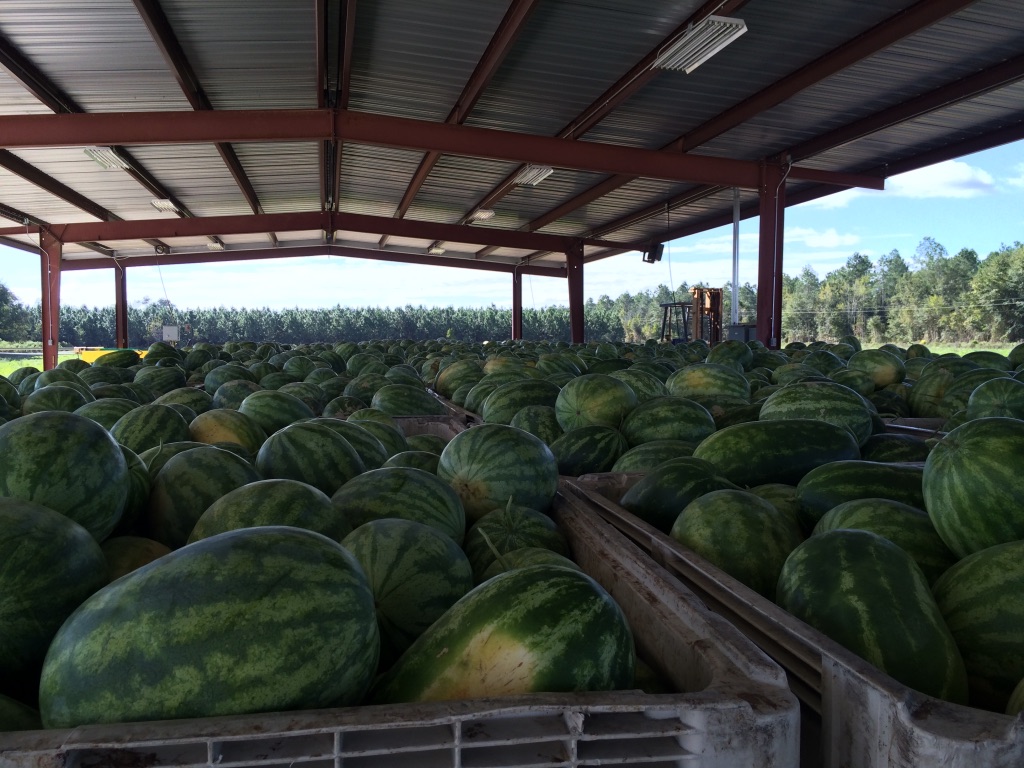South Florida’s watermelon crop is a couple of weeks away from harvest. Producers in that region are looking to rebound after COVID-19 decimated last year’s season. How will producers fare in 2021? Bob Stewart, owner of GID Farms in Immokalee, Florida, says, “You never know.” “You go plant them, grow them and make the best crop you can and let …
Mighty Mites: UGA Extension Encourages Scouting for Strawberry pests
It won’t be long before strawberries will be ready for harvest in South Georgia. University of Georgia Extension encourages producers to scout for spider mites, especially as strawberries begin to ripen and bloom across the state. The two-spotted spider mites are typically light yellow in appearance with a spot on either side of their abdomen. Their piercing-sucking mouthparts can cause …
Crop Updates From the Palmetto State
Clemson Extension agents provide updates in the The South Carolina Grower this week about the status of various crops being produced throughout the state. Weekly Field Update Coastal Rob Last reports, “Strawberry crops in the area are developing well with good fruit set. I am seeing a little gray mold around, so sanitation is going to be key as well …
Sweet Rebound? South Florida Melon Producers Hope to Bounce Back
South Florida watermelon production could use a productive season following last year’s impact from COVID-19. Unfortunately, wind damage may derail farmers’ hopes. “Everything’s beat up from the wind and the cold. The crops that were planted super early more so than the ones that were planted late. I think if the weather stays like it is, the quality will be …
To Fumigate or not to Fumigate?
Excessive rains in February continue to impact South Georgia vegetable producers who are trying to plant this year’s crop. Some fields are still too soggy to apply fumigation, a necessary component of vegetable production in how it controls nematodes and other diseases like fusarium. Farmers are faced with the difficult decision that could impact yields come harvest season: Apply fumigation …
QLA Deadline: Pecan Producers Reminded of April 9 Date
Pecan producers still recovering from Hurricane Michael have three weeks to apply for the Quality Loss Adjustment (QLA) Program. The U.S. Department of Agriculture’s decision to extend the deadline from March 5 to April 9 allows farmers extra time to apply for a program that is assisting producers who suffered crop quality losses due to qualifying natural disasters in the …
Mummified: Blueberry Growers Watch Out for Fungal Disease
South Georgia blueberry producers need to be wary of mummy berry disease. University of Georgia Extension advises growers to initiate sprays for the disease to protect plants that are vulnerable. “Growers usually know around green tip, when new leaves are developing and then through bloom, they need to be putting out effective fungicides for control of mummy berry,” said Jonathan …
Pecan Pest: Ambrosia Beetles Are Active
A main insect pest of pecan trees is active right now. University of Georgia Cooperative Extension specialist Lenny Wells cautions producers that Asian Ambrosia beetles are active in young pecan trees. Beetle activity has been reported from Cook County, Fort Valley and different sites in Eastern Georgia, according to the UGA Pecan Extension Blog. Activity will only increase as temperatures …
Farming’s Future: Ag Labor Reform Needed Now More Than Ever
The future of the American farmer is bleak. Farmers themselves are hinting that the end is near for their career in the field, amid increasing costs, decreasing prices and steady imports from Mexico. One significant help would come in reform to the current H-2A guestworker program, according to Allison Crittenden, Director of Congressional Relations at the American Farm Bureau Federation. …
Grape Diseases: Mildews a Concern for Producers
No matter what environmental conditions grape producers face this season, they are likely to encounter either downy mildew or powdery mildew. “Powdery mildew actually does better in a drier environment. That’s why it’s a major problem in places like California. But when we have dry conditions, it can be worse for us. Even in wet conditions, we have it,” said …










